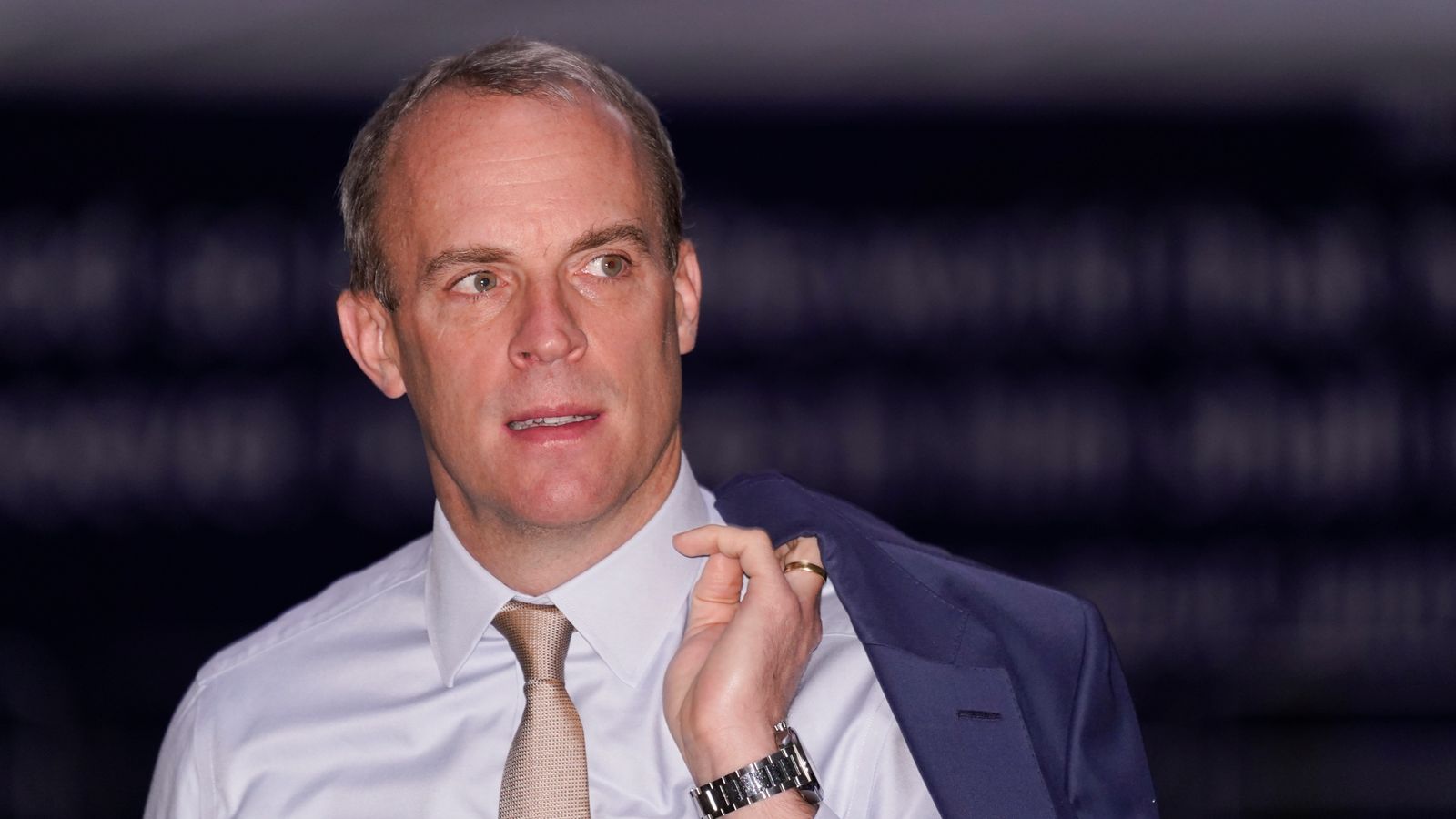Former justice secretary and deputy prime minister Dominic Raab will stand down at the next election, Sky News understands.
It comes a month after he quit Rishi Sunak’s cabinet over claims he bullied civil servants.
Mr Raab has been the Conservative MP for Esher and Walton in Surrey since 2010.
He has “become increasingly concerned” about the pressure the job has placed on his young family, according to a letter explaining his decision seen by The Telegraph.
Mr Raab is the latest high-profile Tory MP to announce they will not be contesting their seats.
Other former cabinet ministers such as Sajid Javid, Nadine Dorries and George Eustice have also announced their intention to stand down.
Last month, a bullying probe into Mr Raab’s behaviour concluded he acted in an “intimidating way” and was “unreasonably and persistently aggressive” in meetings.
Rishi Sunak ‘not aware of any informal concerns about Health Secretary Steve Barclay’s conduct’
PM must stand up for civil service after Dominic Raab’s attacks, says ex-Foreign Office chief
Rishi Sunak will ‘send message bullying is okay’ if Dominic Raab doesn’t lose Tory whip, Lib Dems say
The findings, from independent investigator Adan Tolley, also said his conduct while working across different government departments “involved an abuse or misuse of power in a way that undermines or humiliates”.
The report was triggered after eight formal complaints against Mr Raab from across his time as justice secretary, foreign secretary and Brexit secretary – with two of them upheld.
Mr Raab, who denied wrongdoing, had said he would resign if he was found to have bullied civil servants.
Please use Chrome browser for a more accessible video player
He kept that promise but in a fiery resignation letter took issue with the report, calling the inquiry “flawed” and claiming the conclusions “set a dangerous precedent for the conduct of good government”.
He later said it was a “Kafkaesque saga” and accused a small faction of civil servants of coordinating a plot to oust him.
Mr Raab won his seat at the last election with a small majority of just over 2,700 – down from a majority of more than 23,000 in 2017.
The area is a prime target for the Liberal Democrats in 2024, when the next general election is due to take place.





